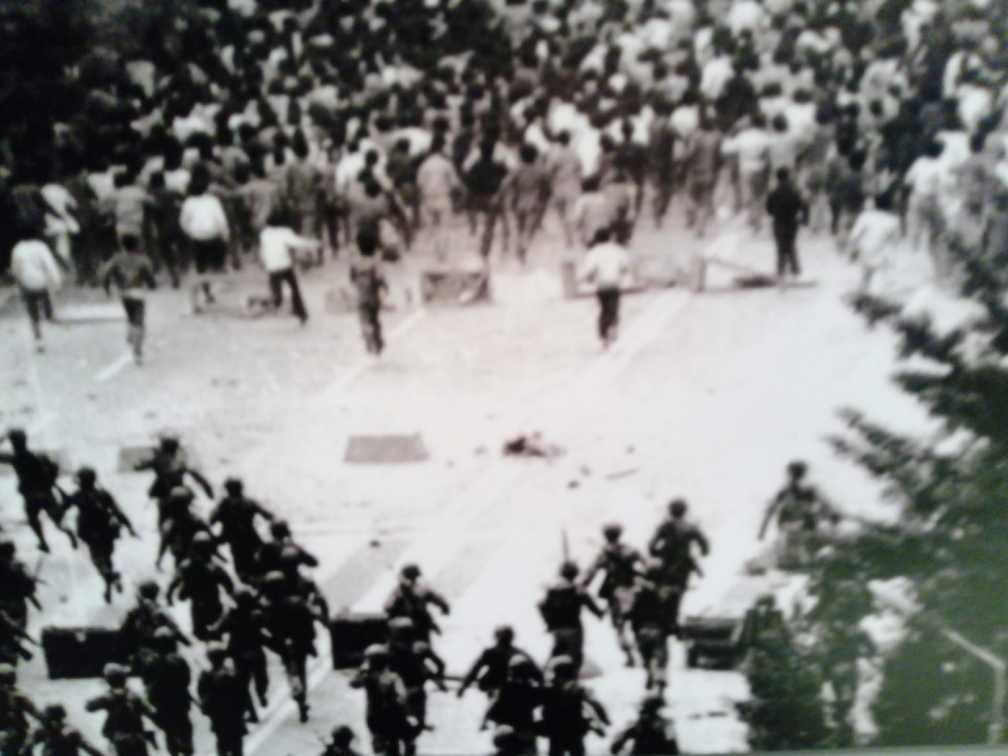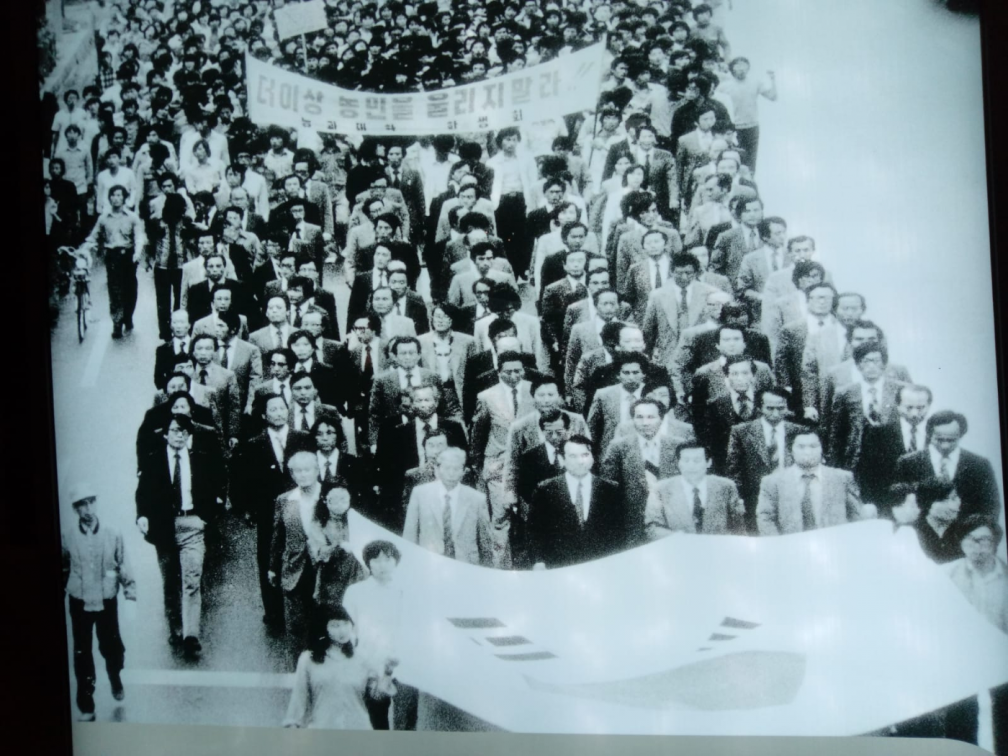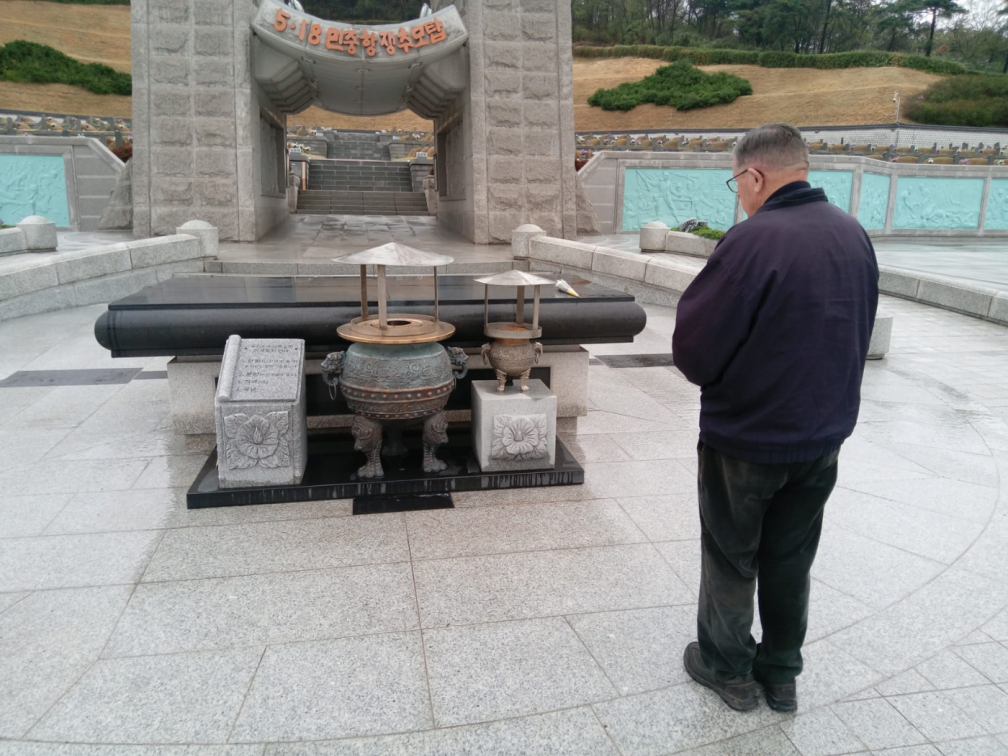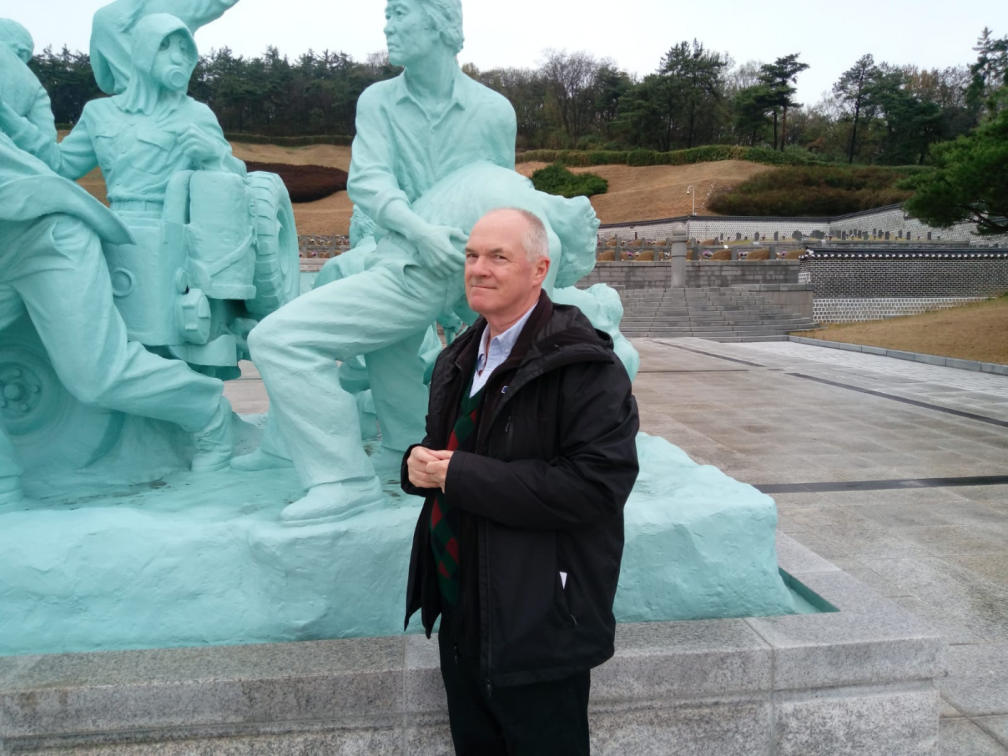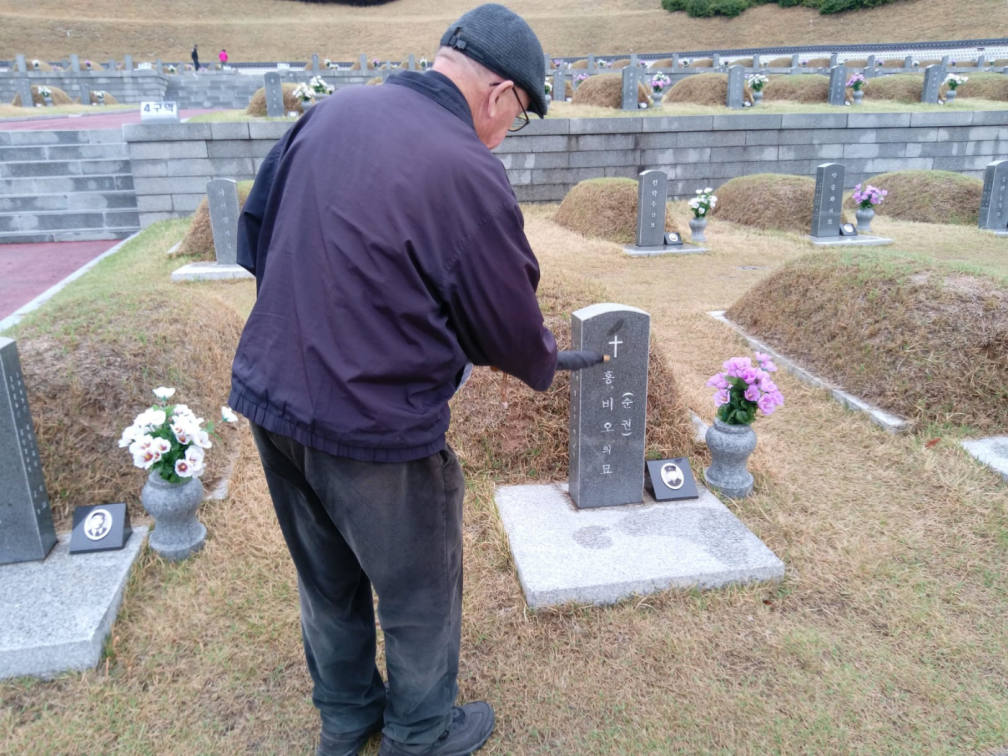
“The first I heard was of a taxi drivers’ strike. I walked to the house of a parishioner, where the lady told me there was trouble in the city. ‘It looks worse than in the War’, she said”.
That’s how South Korea’s “Days of May” began.
Columban Fr. Michael O’Grady lived through those days. Over forty years later, he recalled them as he showed me around Gwangju’s moving “18th. May Cemetery”, where many of the victims of the resultant massacre are buried.
In our times, South Korea is recognized as an example of democracy and development in Asia, especially when compared to autocratic, poverty-stricken neighbouring North Korea. What is less well known is that this democracy has only existed since the 1980s, the result of a movement sparked by a tragedy occurring during a few days in May 1980 in the city of Gwangju.
Michael continued with the memory. “On a Monday, I heard that school buses were being stopped and soldiers were beating up students. A priest friend told me he’d seen kids jumping out of the second-storey windows of the Catholic Centre.”
Trouble had been brewing for years. Ever since the liberation of the Korean peninsula from the Japanese in 1945, the new Republic of South Korea had been ruled by a succession of right-wing dictators, and the people were growing impatient. They wanted the democracy and freedom they’d been promised. The final straw came when another strongman in uniform – a certain General Chun – seized power and declared martial law. Mass protests, led by students, spread throughout the country. Most were brutally repressed, but in Gwangju the story was different. The enraged population resisted, with students to the fore.
“I went down towards the city centre,” Michael remembered. “The roads were full of buses packed with students. Some were riding on the roofs. I came to an army barricade. The tear gas stopped me, so I walked back. Halfway home I saw this abandoned bus teetering on the edge of the riverbank.
It made a great impression on me. I went back in the afternoon. The students had commandeered jeeps from the old FIAT factory. They’d got a truck they were reversing into a police station. Some protesters disagreed. Said it was civic property. But the diver carried on. Went through the walls like butter.”
Incredibly, the students succeeded in expelling the army from Gwangju. An informal civilian authority was established, the “Citizens’ Settlement Committee”, which opened negotiations with the government and demanded the establishment of nationwide democratic rule. Meanwhile, the city functioned for a week as a little island of freedom.
But it couldn’t last.
In scenes redolent of the Tiananmen Square massacre 20 years later, troops regrouped on the edge of the city and then, backed by tanks and helicopters, stormed it. Protesters still occupying the main square were shot a point-blank range. The death toll was eventually put at 228, with over 4,000 wounded. The bodies of the dead were dumped into pits on the edge of town. By 26th. May it be all but over.
“There was a curfew. One old grannie looked out of her window and was shot. The next Sunday, the church was packed. People were praying for the dead and injured, and for those who’d been arrested. It was so sad.” Throughout the following months, Michael and his fellow Columbans did what they could to comfort the wounded and those whose loved ones had been killed or imprisoned.
Happily, the story doesn’t end there. The “May Days” of Gwangju provoked outrage at home and abroad. Pressure against Chun and his cronies mounted, and when the regime’s chief backer – the U.S.A. – withdrew its support, the dictatorship fell in 1987. The longed-for democracy became a reality. Moreover, this flowering of political freedom was matched by a breathtaking economic transformation, and today South Korea is ranked as one of the most highly developed countries in the world.
Columbans have been with the Koreans through all these happenings, sharing their highs and lows, suffering with them the evils of war, poverty, foreign occupation and repression, as well as the joys of freedom and progress.
In Fr. Michael’s case, it is obvious he feels privileged that God has allowed him to witness the rise of a new South Korea from the ashes of the past. I can’t help thinking that the people of Korea are privileged in having had Columbans like HIM stick with them through the bad times as well as the good.

